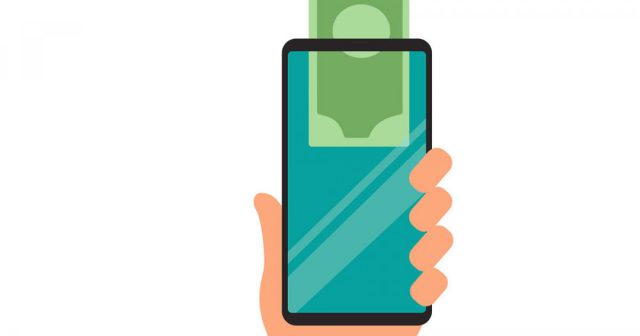Digital nano loans are displaying a promising prospect thanks to the instant and on-time disbursement of loans. About 1.6 lakh customers have already availed the loans from lenders and the default rate is less than 1 percent, according to the banks.
The lenders are disbursing loans amounting to Tk 500 to Tk 50,000 to individual customers on up to 9 percent interest. Since December 2021 when bKash pioneered digital nano loan in a collaboration with City Bank, three more banks have launched such products and all of them opined that they are optimistic about the future of digital lending.
The product has become a huge hit among customers, including small and medium enterprises, who traditionally rely on instant loans that come with high-interest rates.
Md Hafizul Islam, a cloth store owner in the capital’s Islampur, was looking to borrow Tk 50,000 for an urgent need.
He applied for a digital loan through Dhaka Bank’s “eRin” app.
“I haven’t shown any reference or deposit collateral, but within two hours the money was deposited to my account. I will take the loan once again for my business.”
Rajib Ahmed, a private job holder, was one of the first customers to get a digital nano loan.
He availed the loan through bKash in December of 2021 just a week after its introduction in Bangladesh.
In a Facebook post at that time, he wrote: “I took a loan of Tk 3,000 from bKash and after 10 days I paid Tk 3,007.5 in total where the interest rate was 9 percent.”
“This loan initiative of bKash and City Bank is going to bring a big revolution in Bangladesh,” he wrote.
Such loan was usually disbursed based on the credit risk management policy of the lenders.
Ali Ahmmed, chief commercial officer at bKash, said their customers have availed over Tk 314 crore in digital nano loans so far and a majority of them have already repaid the loans.
So far, around 150,000 unique bKash users obtained the nano loan.
After a successful pilot, Prime Bank commercially launched its digital nano loan product, PrimeAgrim, in October of 2022. So far, 2,100 customers have taken the loan and the repayment rate stands at over 99 percent.
“This shows the scale of demand for digital nano loans that persists in our country, and we strongly believe that with a proper framework and further support from relevant authorities, this product has immense potential to grow,” said Nazeem A Choudhury, deputy managing director for consumer banking at Prime Bank.
“We have designed innovative loan offerings to white-collar customers and digital device financing. We are currently working to expand our scope into digital micro-credit solutions tailored for regular retail customers,” he said.
Dhaka Bank has so far disbursed around Tk 10 crore under e-Rin products, said the bank’s managing director and CEO, Emranul Huq.
“Over 3,000 people have so far availed of the loan and the number is increasing every day. The default rate is almost zero, which is great.”
“Initially we launched the product for the payroll accountholders and now we have opened it for general customers as well,” he added.
Bank Asia has recently launched digital nano loan on a pilot basis to transform its business with the rapidly changing technological environment, according to Quazi Mortuza Ali, its senior vice president.
The loan disbursement process uses a credit scoring model analyzing finances and metadata. Initially, loans amounting from Tk 500 to Tk 50,000 will be provided, payable in six months, according to Bank Asia.
The digital loan initiative was also backed by Bangladesh Bank as it introduced a Tk 100 crore refinance scheme in 2022.
The central bank raised the fund for the digital refinance scheme to Tk 500 crore in July this year dedicated to the marginalized people.
The loans are disbursed entirely digitally by using Internet banking, mobile apps, mobile financial services, or e-wallet services.
The organizations which have massive numbers of customer data, technological supremacy, data processing capacity and heavy investment capability will rule the roost in digital lending, said Ahsan H Mansur, executive director at the Policy Research Institute of Bangladesh.
“bKash has already become such a platform equipping it with those prerequisite criteria. If others can do that, they will also be successful.”




















